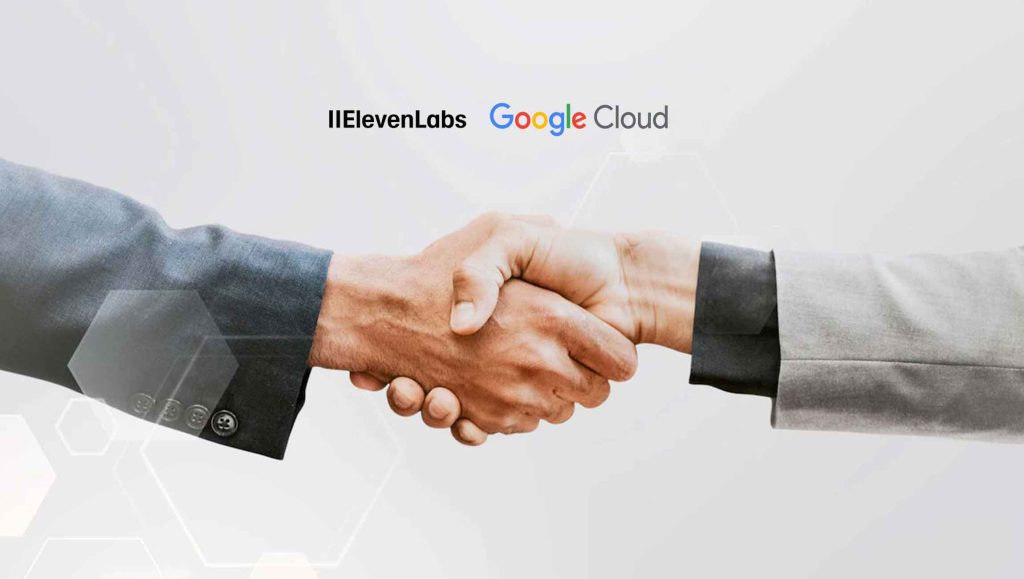Now more than ever is the time for sales and marketing leaders to better understand their customers’ needs while being empathetic toward them. Patrick Lannon, Chief Renewals Officer at Acoustic joins us in this interview to talk about what it is that still draws him to the technology sales industry while sharing some key insights and tips. Catch the excerpts.
_____
Can you tell us a little about yourself Patrick? What are the things you love most about tech sales / inside sales and what have you loved most about your journey in tech so far?
I’ve worked in tech sales for about 20-25 years and once I entered it, I never considered doing anything else. What drew me to it in the first place is exactly why I’m still here. I believe in the transformative power that technology can bring to companies.
Good tech applied the right way has the potential to multiply a company’s value proposition.
I got started during the dot com boom where the norm was breaking down old business models and trying new and innovative ways to engage customers. The world changed very quickly, and it was a fantastic time for a young kid to get into tech.
People tend to take for granted the importance the internet technology has in their lives – it is like a utility – they only think about it when it isn’t working. However, there are several big things on the horizon that have the same magnitude of potential the internet did; AI and quantum computing are two prime examples. The opportunity to work with and around those type of transformative technologies is the primary reason I joined IBM. I chose to help carve out Acoustic (formerly Watson Marketing) from IBM because our strategy and technology, especially where we are going, will absolutely and radically help companies use martech to transform how they engage their customers. That is the type of journey I want to be on and why I’m so excited about what I get to do.
In terms of selling technology, that’s just a means to end. Even though I’ve spent most of my career in the sales side of tech, I don’t believe our customers are actually “buying” our technology. They are buying the transformative power and the value that technology will bring to their business.
Read More: SalesTechStar Interview With Liz Pulice, VP Of Sales Enablement At Brainshark
What according to you are the five top signs/indicators of a highly productive tech sales team?
First, the most productive tech sales teams will have a rigor in their process. Second, trust in the resources around them. Third, a high degree of accountability to both – the business and their customers. Fourth is an understanding of their customer, which helps sales teams to articulate how technologies will bring them a meaningful experience. The last indicator is post-sale success and if the work you did during the sales cycle resulted in a happy and successful customer.
How have you seen the martech / salestech segment evolve over the years- what are some of the top in-demand features when it comes to data and insights that you feel every tech sales person and marketing team should have easy access to, to drive their efforts?
What’s driven the biggest evolution in martech and salestech are the products that better help you understand your customer and engage with them how and when they want. From a Martech standpoint, improvements around segmentation and personalization have been pretty incredible. Our ability to leverage AI to decode mountains of data and harness it to better understand our customers is absolutely changing the game. The next big evolution is going to come from things like improved usability and distributed marketing. On the CRM side, we’ve had base technology for a long time and are consistently getting more features and functionality, but I think the cloud-based open ecosystem approach has driven the greatest advancements across tech because we now see small players in the space developing very creative solutions that can now seamlessly layer on top of that base tech.
What according to you are some of the must-have sales technologies that everyone in technology sales including field sales teams should integrate into their overall tech stack?
There is a whole host of technology available to sales and marketing teams. Companies that don’t recognize the potential value of good tech applied in thoughtful ways are missing a significant opportunity. However, tech for tech’s sake does not help either. Tech is just a set of tools; it’s about how you integrate tech into your work life, sales methodology, support teams and so on.
Key technologies include campaign, pipeline, and lifecycle management. Marketing is all about raising awareness and consideration rate and increasing pipeline. Marketing teams need tools that support these goals. These include omni-channel personalized campaign management solutions, an adtech stack, and analytics tools that can help you understand and improve your customer engagement. Your selling teams need a comprehensive CRM, a sales enablement platform, and other key solutions depending on your business model that support inside sales, tech sales, etc. Central to all of it is CRM but, with it and any other sales tool, what is critical is introducing and managing a system discipline and rigor – those tools are only as good as the data that is in them and how you use them.
Read More: Responding To Immediacy With Low-Code CRM Solutions
As a tech sales leader, in a challenging environment due to the Covid19 pandemic: what are some of the ways in which you are enabling a balanced remote work culture while maintaining motivation levels?!
I’ve spent the past 15 years working remotely. Working remotely comes very naturally to some people. Others can get there, but they need coaching from their leaders. This is a difficult time for a lot of individuals who need to learn new and important skills as they transition to remote work. It’s our job as leaders to help our teams develop those skills. First and foremost, leaders need to have empathy for their team. Second, they need to coach and third, have accountability. Especially in a remote workforce, work effort becomes less evident than work product and outcome. It’s no longer about how many hours you spend in the office. Now more than ever, it’s about creating and driving outcomes. If you don’t already have one, building a results-based management system should be a top priority.
How according to you will the typical role of tomorrow’s B2B/Tech sales person evolve, given the dynamics and innovations in SalesTech, specifically sales enablement?
There is a rise in the recognition that not every sales person is the same. Sales leaders need to enable multi-channel and multi-methodology sales enablement that accounts for the differences in how people work and learn. The same ideology goes for teams: recognize individuality and build teams that leverage individual’s unique talents and skills rather than trying to build a team based on one type of person.
As we look forward, there is a lot that will change in the workplace. For example, companies are evaluating how much travel they need to conduct and how much real estate they need to support their workforce. The pandemic has forced us to see what our businesses can accomplish in the face of everybody working remotely to reconsider the value of travel. Customers will question the necessity of face-to-face interactions and will ultimately dictate if sales meetings need to occur in person. I believe we’ll all start traveling again, but we will also scrutinize its necessity.
Tag (mention/write about) the one person in the industry whose answers to these questions you would love to read!
Aron Ain, CEO, Kronos. I’d be interested in Aron’s answers to these questions. I used to work for him and found him to be an absolutely phenomenal leader. Years ago, I sat in on a meeting with him and several Kronos leaders in the room. He asked “what is the technology that would put us out of business?” It wasn’t that Aron was worried about what our competitors might create that would put us out of business, rather he wanted us to be the ones developing that technology. Beyond driving his organization into the future, he also has a deep focus on a culture of putting your employees first. He’s not soft and he has a high bar of accountability, but he cares deeply and personally about his employees. As a result, they care deeply about the company, exhibit extreme loyalty and will go the extra mile to care for their customers. If you look at Kronos’ success year after year, Aron’s approach works. It is just that simple.
Listen In -> To The Latest Episode of The SalesStar Podcast!
Your favorite Sales/SalesTech quote and sales leadership books you’d suggest everyone in tech Sales reads
There are two quotes that while aren’t specifically salestech related, apply to how we should be thinking, especially when put side by side.
The first is, “If you wait until there is another case study in your industry, you will be too late!” – Seth Godin. In the tech industry, don’t worry if nobody has successfully tried your idea. In fact, relish it and execute it or else, you’ll be playing catch up.
The second is, “Any sufficiently advanced technology is indistinguishable from magic” – Arthur C. Clark. These quotes really work side by side. Technology can do things that seem impossible, but they don’t seem impossible if everybody else is doing them already. Don’t wait for other people to do the impossible, seek it out and do it for yourself.
My favorite leadership book would be – Leaders Eat Last by Simon Sinek.
Tell us about some of the top events that you’ll be participating in (virtually, given the current global pandemic) (as a speaker or guest!) in 2020!
I have participated as a speaker and a delegate in the GDS Group events. These are smaller industry specific events that combine industries with specific disciplines. They have a tremendous focus on driving important content, giving both the vendors and the attendees visibility into the latest trends in an articulate space with collective networking events to help collaborate and move the ball forward.
We’d love to know a little about your future plans!
Our Acoustic sales team is going to continue to focus on improving the customer journey through driving value for and in partnership with our customers.
A few last minute tips for sales and marketing teams (businesses) trying to navigate through the current pandemic crisis.
Now more than ever, sales and marketing teams need to understand their customers’ needs and not be tone deaf. They need to be empathetic toward their customers. Some of their customers might be thriving as a result of this pandemic and others might be dramatically negatively impacted by it. Businesses need to be aware of how their customers have been impacted by the pandemic and to what degree and think of ways to bring relief for their customers.
At Acoustic, we have put together a COVID Center on our web site that offers free access to a number of great resources in webinars, articles and tools.
Businesses that create offerings and solutions to help customers get through these challenging times will create a deeper loyalty that will remain when we all get through this.

Acoustic offers the industry’s leading open marketing ecosystem comprised of intuitive, AI-powered products that are purpose-built for marketers.
Patrick Lannon is the Chief Renewals Officer at Acoustic, an independent marketing cloud platform driven by a mission to unleash the brilliance in marketers. Before this, he was VP of Customer Engagement at IBM. He has also held managerial roles at Kronos.





















